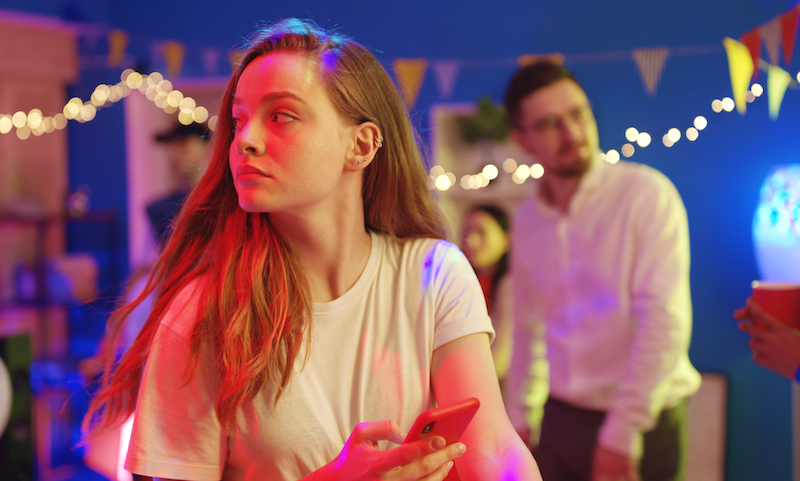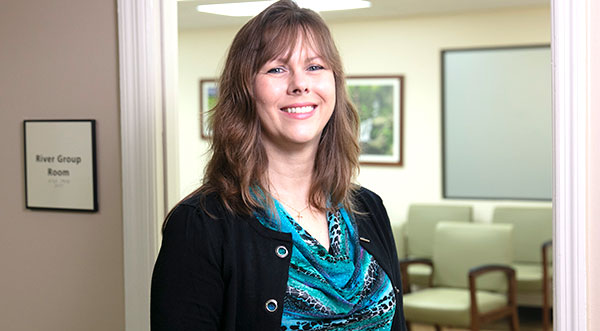HEALTH & MEDICINE SPOTLIGHT Loneliness can intensify during the holidays, but connecting with others, joining community events, and practicing self-care can help boost well-being. DeAnn R. Collins, MSW, LCSW, behavioral services clinical manager with Health First, says it’s critical to understand what loneliness really is — and what it isn’t.
Loneliness can intensify during the holidays, but connecting with others, joining community events, and practicing self-care can help boost well-being. DeAnn R. Collins, MSW, LCSW, behavioral services clinical manager with Health First, says it’s critical to understand what loneliness really is — and what it isn’t.
How to Protect your Mental Health this Holiday Season: With Depression Affecting over 30% of Local Adults, Health First Expert Outlines Steps to Stay Grounded and Connected
BREVARD COUNTY, FLORIDA — For many people, the holidays are painted as a season of joy, family traditions, and festive gatherings. But for a significant number of Brevard County residents, this time of year can magnify loneliness, grief, and mental health struggles.
According to the 2025 Community Health Needs Assessment, 30.4% of Brevard adults have been diagnosed by a physician or other health professional with a depressive disorder, such as depression, major depression, dysthymia, or minor depression.
In addition, 24.1% of area adults are currently taking medication or otherwise receiving treatment from a doctor or other health professional for some type of mental health condition or emotional problem.
Against this backdrop, DeAnn R. Collins, MSW, LCSW, behavioral services clinical manager with Health First, says it’s critical to understand what loneliness really is — and what it isn’t.
“When we think about loneliness, we often think about someone who’s alone and that they must be lonely,” Collins said. “But someone can be alone and be completely satisfied and content with where they are. And we can also be in a huge crowd of people and still feel lonely.”
Collins explained that loneliness and mental health conditions often feed into each other.
Depression, anxiety, and other challenges can exacerbate feelings of loneliness, especially when people are isolated or have limited support. But identifying as lonely can also increase the likelihood of developing or worsening mental health issues.
“If someone is mentally not having struggles with depression or anxiety but they’re starting to identify with being lonely, that can increase the likelihood they’re going to have challenges with their mental health and wellness,” she said.
“It can contribute to them going into a depressive episode or being more anxious because they’re worried about what’s going to happen to me in the future if I don’t have any supports.”
Age and life stage can play a role as well, particularly for those who worry about being alone as they get older.
The holiday season, Collins noted, often piles on pressure through cultural norms and media messages that promote an idealized version of family life.
She pointed to those iconic images many people grew up with — the “perfect Thanksgiving” table, the smiling family gathered around a turkey, everyone seemingly content.
 DeAnn Collins, MSW, LCSW, behavioral services clinical manager with Health First, offers ways to protect your mental health this holiday season.
DeAnn Collins, MSW, LCSW, behavioral services clinical manager with Health First, offers ways to protect your mental health this holiday season.
“Everyone thinks that’s what they should have, and it’s kind of been drilled into us that holidays are all about family,” she said.
“But not everyone celebrates in that way. A lot of times people have suffered losses and they don’t have a family to be with, or maybe they’ve been disenfranchised. Maybe they live across the world from their family.”
On top of that, some people do have family nearby, but those relationships are strained.
“We want to be with our family, and yet there’s all this conflict and tension and bickering that ruins the holiday,” she said. “It goes back to our expectations. When we fall into that expectation trap, it sets us up for an awful lot of distress.”
Social media can make all of this worse.
Collins said it’s easy for people to compare their lives to carefully curated posts and “perfect” influencer content.
“It’s really hard for people not to fall into the comparison trap,” she said. “People only let us see what they want us to see. There is no perfect life. There’s just life.”
She encourages people to be selective about what they consume online and to focus on content that lifts them up instead of dragging them down.
“We don’t have to get sucked into the social media trap,” she said. “Just because we think something doesn’t necessarily mean it’s the truth. Feelings aren’t facts.”
For those who feel isolated — whether they’ve just moved, lost connections, or find it hard to make friends — Collins recommends taking small, practical steps to re-engage.
“I love libraries,” she said. “Libraries are a wealth of opportunities to do different things for all ages.”
She suggested volunteering with local organizations such as hospitals, schools, or the zoo, or joining community-based activities like educational walks at Turkey Creek for example. For those who are spiritually inclined, visiting churches to find a good fit can also provide connection.
“Getting out there and being an active participant in the community is a great way to meet people,” she said.
For introverts, she recommends “baby steps” and realistic limits.
“If I know my maximum time allotment for social interaction is two or three hours, set an alarm,” she said. “We don’t want to get tapped out and burnt out. Being introverted doesn’t mean you don’t like to be around people. You like it in limited doses — and that’s OK.”
 For those who already know their holiday gatherings will be chaotic or stressful, Health First’s DeAnn Collins said it’s important to be honest with yourself and set boundaries. She pointed to those iconic images many people grew up with — the “perfect Thanksgiving” table, the smiling family gathered around a turkey, everyone seemingly content.
For those who already know their holiday gatherings will be chaotic or stressful, Health First’s DeAnn Collins said it’s important to be honest with yourself and set boundaries. She pointed to those iconic images many people grew up with — the “perfect Thanksgiving” table, the smiling family gathered around a turkey, everyone seemingly content.
For those who already know their holiday gatherings will be chaotic or stressful, Collins said it’s important to be honest with yourself and set boundaries.
“Admit to yourself: yes, this is going to be chaos, I’ve been through this before,” she said. “But also give yourself an out. I’m going to go, but I’m only going to stay for half an hour. Or give yourself permission to say no.”
“The price is going to be paid either way,” she added. “You either go and you’re miserable, or you decline and maybe take some flak — but saying no is just as powerful as saying yes.”
Whether during the holidays or any other time, Collins said self-compassion is huge.
“Being kind to ourselves and recognizing that we are human, that we need to show ourselves grace and give ourselves permission — whether it’s permission to say no or permission to have some quiet time — is critical,” she said.
She also encourages people to try to maintain their normal healthy routines during the holiday rush: getting enough sleep, eating regular meals, and going easy on “celebratory libations.”
“If we think about those healthy habits, they’re really self-maintenance and self-care,” she said. “Those habits can combat the loneliness that can come along for some people with the holidays.”
Mindfulness, even in simple forms, can help people stay grounded.
“When I step outside, I focus on what I feel — the air, the sun on my skin, the breeze through the trees,” she said. “Little things that seem nonsensical are soothing for the soul. That, to me, is really being mindful.”
Once the holiday is over, emotions don’t automatically reset.
“It could go two ways,” Collins said. “A sense of relief — I made it through — or a sense of sadness because things didn’t happen the way you hoped.”
If someone finds they’re really struggling, she recommends reaching out for help — and emphasizes that therapy doesn’t have to be long-term.
“There’s growing research that talks about single-session therapy,” she said. “Sometimes people just need someone to sit down with and process how they’re feeling.”
She notes that traditional therapists can offer one or two sessions, and community resources like 211 and 988 also have counselors available, even when someone isn’t in immediate crisis.
Above all, she wants people to remember they are not alone.
“There are millions of people on this planet that are lonely or going through hardships,” Collins said. “Sometimes we forget that because it feels overwhelming and it feels like it’s just us. There’s something to be said for realizing you’re not the only one.”
CLICK HERE if you would like more information about Health First’s behavioral health or mental health services. If you or someone you know is at immediate risk of self-harm or harm to others, please contact emergency services by calling 911.
